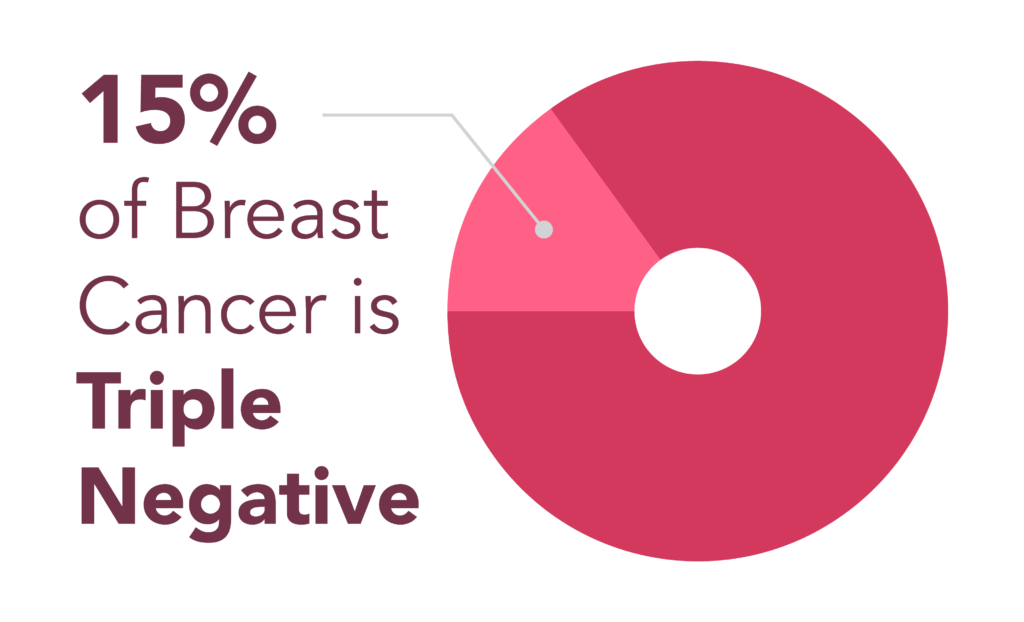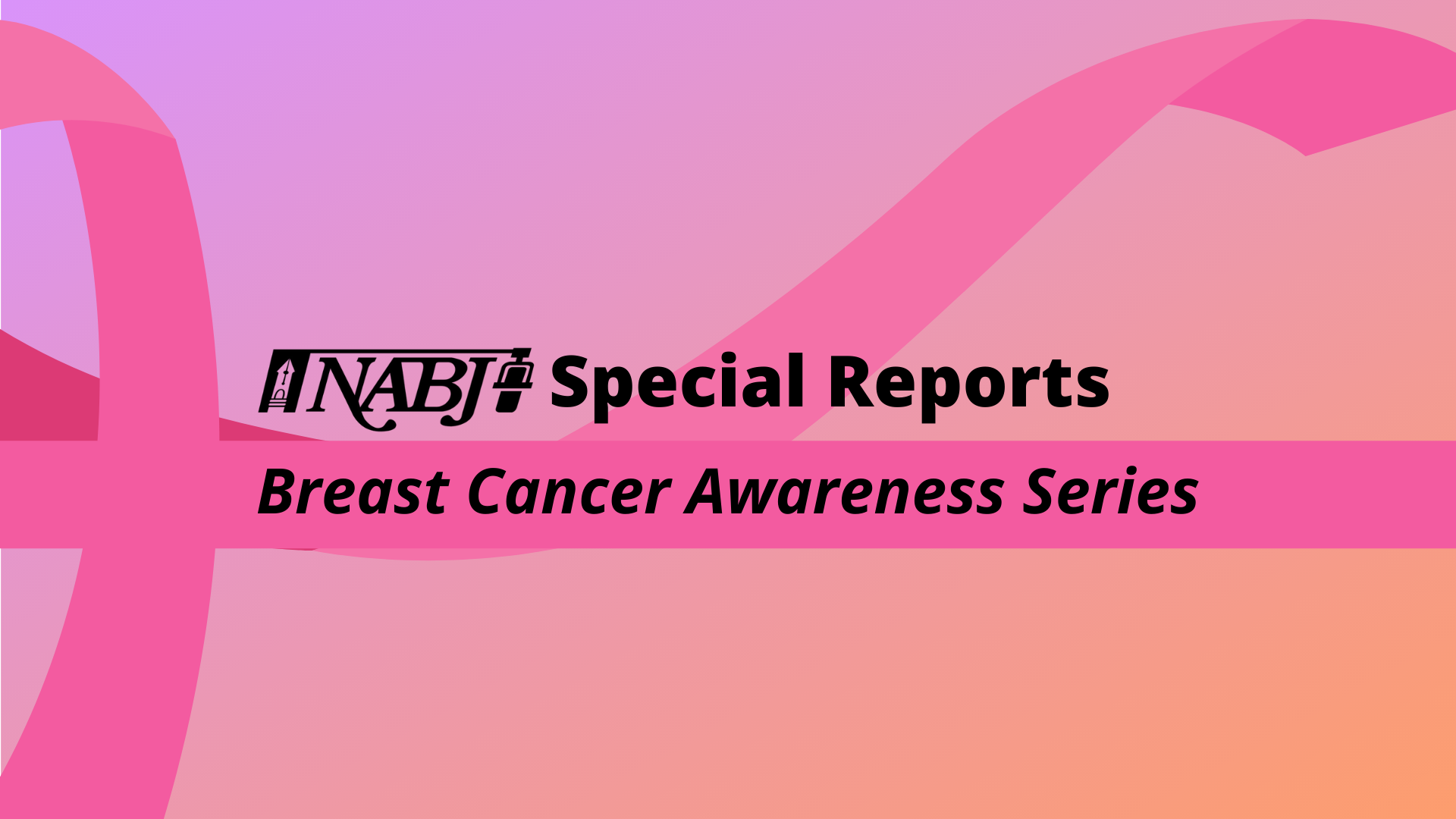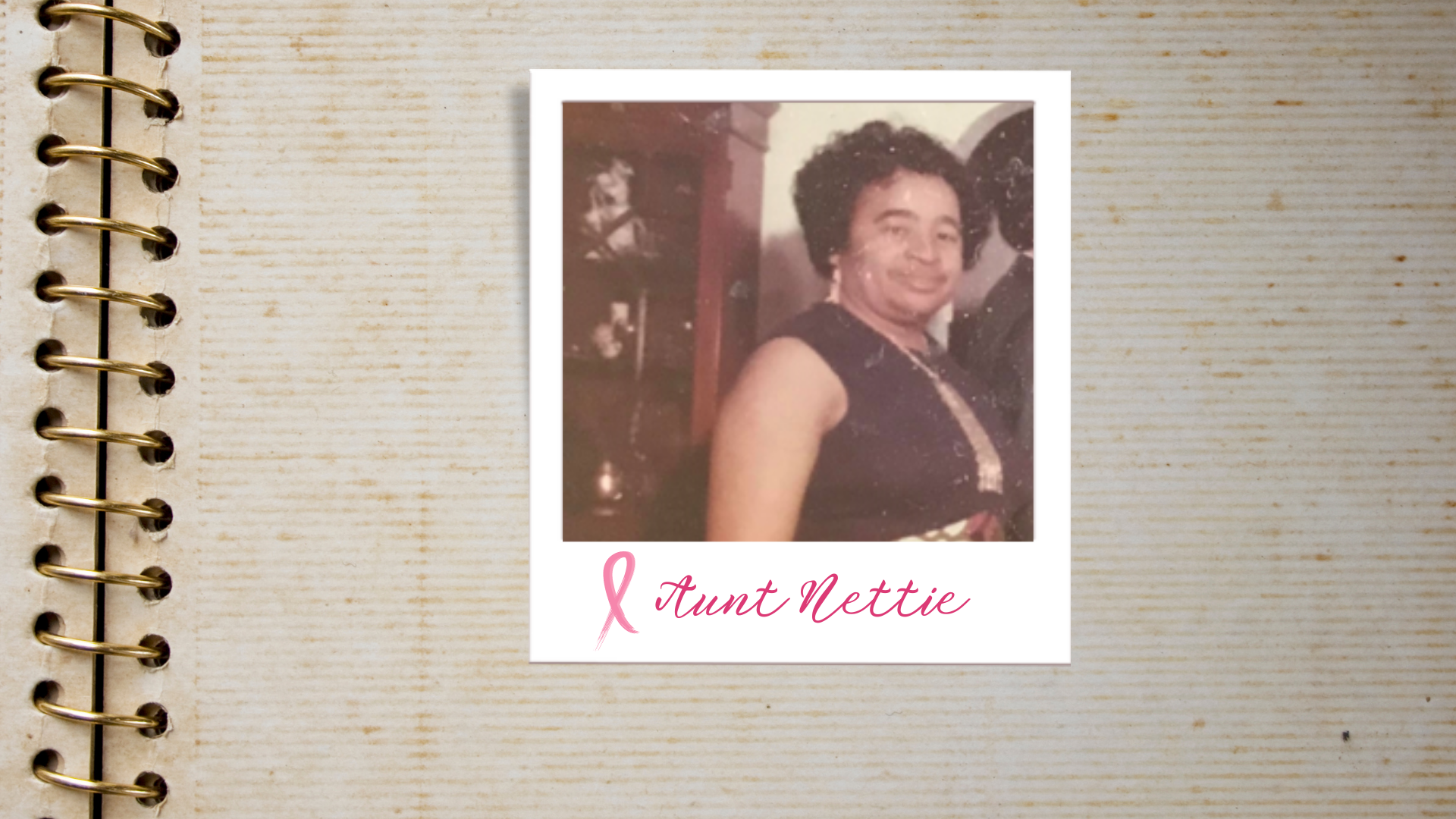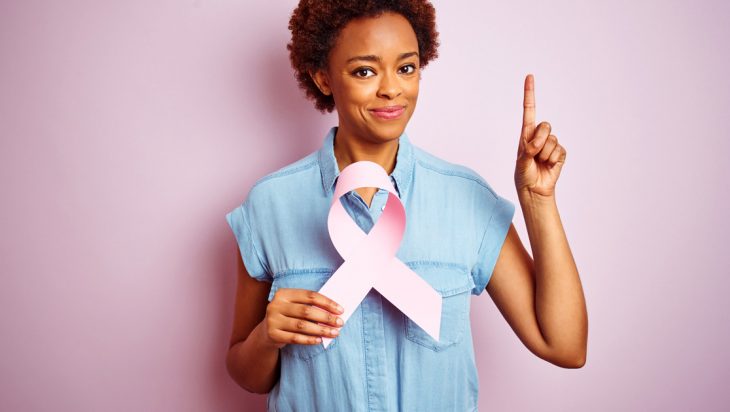Aggressive Triple Negative Breast Cancer Kills More Black Women Than Women of Other Ethnicities
I Learned The Importance of At-home Self Breast Examinations When I Was a College Student
10/27/2021Expert: Mortality Rates for Breast Cancer Improving But Still Grim for Black Women
10/27/2021
www.nationalbreastcancer.org
By SAUNDRA YOUNG
Triple negative breast cancer is an aggressive type of cancer more prevalent in Black women under the age of 40 or those who have a BRCA1 mutation. BRCA1 and BRCA2 are genes that suppress tumors and help keep breast cells from growing and dividing too quickly and uncontrollably.
African Americans have BRCA1 variants that other racial/ethnic groups in the United States do not have. The disease is more common in Black women than women of any other ethnicity.

“Triple-negative breast cancer in African Americans, has a higher mortality rate, more advanced stage at the time of diagnosis so that there are larger tumors that have spread to other parts of the body,” said Edith Mitchell, MD, clinical professor of medicine and medical oncology at Sidney Kimmel Cancer Center at Thomas Jefferson University in Philadelphia, PA. “At the time of diagnosis there’s a younger age distribution in that these tumors occur in younger women… Tumors are more aggressive, they spread faster, they don’t respond to treatment as well and consequently the woman is at risk.”
And it doesn’t have any of the receptors typically found in breast cancer. Receptors are molecules inside or on the surface of a cell.
The Center for Disease Control and Prevention describes triple negative breast cancer this way: Think of cancer cells as a house. To get inside to destroy the cancer you have to bypass three locks on the front door, called receptors. One is for the female hormone estrogen. One is for the female hormone progesterone, and one is a protein called human epidermal growth factor (HER2).
If the cancer tests positive for any of these three locks, doctors have a few keys like hormone therapy or other drugs they can use to help destroy the cancer cells.
But if a woman has triple-negative breast cancer, the tumor cells do not have estrogen, progesterone and HER2 receptors, so doctors have fewer keys for treatment.
Mitchell is also director of the center to eliminate cancer disparities and associate director of diversity affairs at the Kimmel center. She is one of three members on the President’s Cancer Panel that reports to the President on barriers to progress and reducing the burden of cancer.
Mitchell was the first female physician to be promoted to the rank of Brigadier General in the United States Air Force and as a breast cancer researcher has treated triple-negative breast cancer patients.
Her advice to Black women facing this diagnosis? Push away negative thoughts and find experts who specialize in this type of breast cancer.
“I have triple-negative breast cancer patients that have survived 20 years or more and they had advanced cancers, but they went on clinical trials, they took the new treatments and we worked with the patients. … So, finding a healthcare team where there is a radiation doctor, a medical oncologist and an experienced surgeon is absolutely necessary for all three to get together, develop a treatment plan together so that the patient has the most effective use and the combined modality therapy of all three specialties.”
According to the American Cancer Society (ACS), because this type of cancer is different from other types of invasive breast cancer due to its fast growth, fast spread, limited treatment options and poorer prognosis, it’s more likely to have spread by the time it’s found and is more likely to come back after treatment.
If the cancer hasn’t spread, surgery is an option. Treatments usually include a lumpectomy where the lump is removed or mastectomy where the entire breast is removed. Chemotherapy and radiation therapy are both options.
Other treatments include PARP inhibitors, a protein that helps cells repair themselves if they become damaged. PARP inhibitors stop the PARP from repairing cancer cells, causing certain mutations to die. These precision medicines that target specific cancer cells are revolutionizing cancer therapy.
Precision medicine is using the markers and the genetics and genome of your tumor to help select therapeutic options for treatments. Mitchell said precision medicine and clinical trials should always be a part of your treatment plan.
“With clinical trials we’re developing new drugs that work and actually using some old drugs because we’re finding with the clinical trials, they may be effective in triple negative breast cancer,” Mitchell added. So, women, if you feel a lump in your breast, go get it checked out. And if the doctor tells you you’re too young to have breast cancer, go find another doctor.”

“Patients who go on to clinical trials,” she continued, “Usually get medications early or may have involvement that studies the genomic profile of the tumor, the genetics of the tumor and therefore we learn more from precision medicine. So, individuals should opt for a center that uses precision medicine and ask the doctors about it and get as much information that you can.”
Mitchell said there are several things that disproportionately predispose Black women to triple-negative breast cancer. Socio-economic disparities, lifestyle, and reproductive experiences like having children at an earlier age and diet and nutrition. Women who are overweight and obese are also at increased risk.
Otis Brawley, MD, is a professor of oncology and epidemiology at Johns Hopkins University School of Medicine. The former chief medical and scientific officer for the American Cancer Society advises focusing on “earlier detection and appropriate surgery. You would be surprised how many women don’t get appropriate surgery. They get the surgery and there’s a margin that’s positive.”
The surgical margin is a rim of normal tissue that is removed along with the cancer. If cancer cells are found in the margin, additional treatment decisions, including additional surgery, are made.
Brawley said that sometimes does not happen for various reasons, including that the woman might refuse to have another surgery, or the doctor does not tell the patient they need surgery again.
He said the research on who tends to get triple-negative disease and why is clear. “The studies show that women who have breast cancer and its triple negative are more likely to be obese, more likely to have pre-diabetes and diabetes associated with the obesity, are more likely to have had a high carbohydrate diet especially in childhood, indeed women who have triple negative disease are more likely to have started menstruating about two years earlier than women who did not have triple disease.”
“We know that having lots of children also increases risk of triple negative later on,” he continued. “And we find that women who have triple negative disease are more likely not to have breastfed.”
Brawley said this disease is not necessarily about being Black or white. “This is not a race thing. Education causes people to not have babies and not having babies certainly before the age of 30 increases the risk of having breast cancer and the kind of breast cancer that you get is the better kind. Black women do certain things or certain things are done to them that increase their risk of triple-negative disease and educated people who are overwhelmingly white do things that increase their risk of non-triple-negative disease.”












